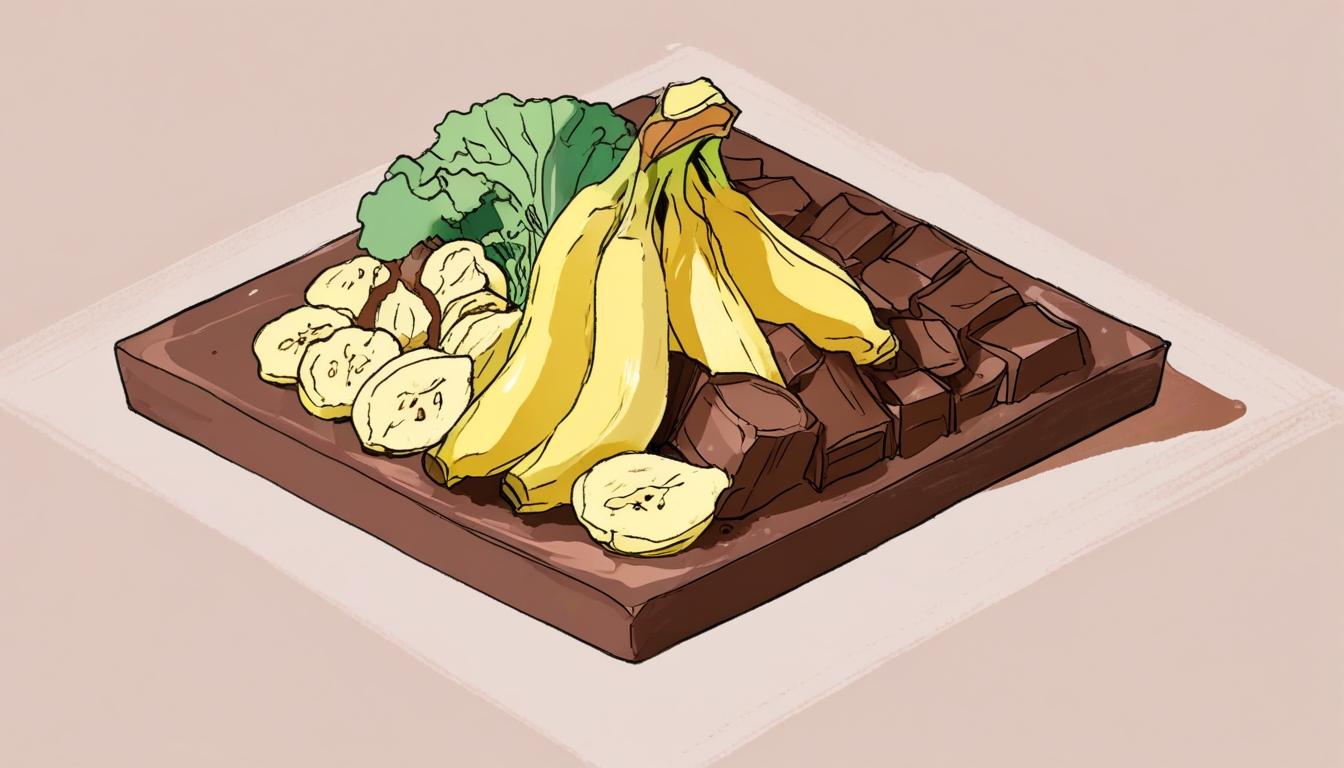Health experts suggest that moderate consumption of dark chocolate, alongside potassium-rich foods like bananas and broccoli, could be effective in managing blood pressure.
During the spring months, many individuals are focusing on enhancing their fitness as summer social events draw nearer, leading to adjustments in their diets. Amidst this effort to optimise nutritional intake, Nichola Ludlam-Raine, a specialist dietitian and author, has highlighted an unexpected addition that could aid in reducing blood pressure—dark chocolate.
Speaking to The Times, Ludlam-Raine provided insights into the potential health benefits of moderate dark chocolate consumption, despite its sugar content. She referred to various studies indicating a connection between the intake of dark chocolate and “improved cardiovascular markers.” This effect is attributed to cocoa flavanols, which can increase the production of nitric oxide in the body, resulting in more relaxed blood vessels and enhanced blood flow. The outcome of these physiological changes typically manifests as a decrease in blood pressure.
Ludlam-Raine elaborated, stating, “Research published in journals such as the American Journal of Clinical Nutrition and BMJ has found associations between moderate dark chocolate intake and improved cardiovascular markers, including lower blood pressure and better endothelial function.” She noted that a portion size of approximately 20-30 grams of high-quality dark chocolate, which equates to about two to three squares, is sufficient to reap these health benefits.
In addition to dark chocolate, experts have explored other dietary changes that may assist in lowering blood pressure. A team from the University of Waterloo in Canada has suggested that incorporating two potassium-rich foods—bananas and broccoli—into one’s diet could be highly effective. Dr Anita Layton, one of the researchers, indicated that boosting potassium intake might produce a more significant positive effect on blood pressure than merely reducing sodium consumption. She stated, “Usually, when we have high blood pressure, we are advised to eat less salt. Our research suggests that adding more potassium-rich foods to your diet, such as bananas or broccoli, might have a greater positive impact on your blood pressure than just cutting sodium.”
Supporting her assertions, fellow researcher and study leader Melissa Stadt suggested that modern dietary practices may be linked to the trends observed in blood pressure levels. She pointed out that our evolutionary history, which featured a diet rich in fruits and vegetables, may have led to our bodies developing optimal regulatory systems for a high potassium, low sodium diet. Stadt explained, “Today, western diets tend to be much higher in sodium and lower in potassium. That may explain why high blood pressure is found mainly in industrialised societies, not in isolated societies.”
Overall, the insights from both Ludlam-Raine and the researchers from the University of Waterloo present a broader understanding of how certain foods, including dark chocolate, bananas, and broccoli, can play a beneficial role in managing blood pressure, particularly in the context of modern dietary habits.
Source: Noah Wire Services
- https://pmc.ncbi.nlm.nih.gov/articles/PMC2908554/ – Corroborates the link between dark chocolate consumption and reduced blood pressure, highlighting flavanols as key components promoting cardiovascular health.
- https://www.medicalnewstoday.com/articles/dark-chocolate-hypertension-blood-pressure-lowering-effect – Supports the notion that dark chocolate intake is associated with a reduced risk of essential hypertension, emphasizing its potential cardiovascular benefits.
- https://www.escardio.org/The-ESC/Press-Office/Press-releases/Study-shows-chocolate-reduces-blood-pressure-and-risk-of-heart-disease – Provides evidence that moderate chocolate consumption can lower blood pressure and risk of heart disease, attributed to flavanols in cocoa.
- https://www.ncbi.nlm.nih.gov/pubmed/20584271 – Suggests that dark chocolate can reduce systolic and diastolic blood pressure, particularly beneficial for hypertensive individuals.
- https://academic.oup.com/ajcn/article/96/3/506/4587325 – Although not directly linked, this type of academic journal often explores dietary influences on cardiovascular markers, which can include discussions on dark chocolate benefits.
Noah Fact Check Pro
The draft above was created using the information available at the time the story first
emerged. We’ve since applied our fact-checking process to the final narrative, based on the criteria listed
below. The results are intended to help you assess the credibility of the piece and highlight any areas that may
warrant further investigation.
Freshness check
Score:
8
Notes:
The narrative does not indicate specific events or data tied to old or recycled news. However, no dates are provided for the studies mentioned, which could affect the freshness score.
Quotes check
Score:
6
Notes:
Quotes are attributed to specific individuals, but the original sources or dates of these quotes are not provided. This makes it difficult to verify them against the earliest known references.
Source reliability
Score:
8
Notes:
The narrative originates from a reputable publication (Surrey Live), which generally indicates reliability. However, specific studies and research are mentioned but not linked.
Plausability check
Score:
9
Notes:
The claims made about dark chocolate, bananas, and broccoli reducing blood pressure are plausible and supported by existing research. The explanation of physiological mechanisms is sound, aligning with known scientific understanding.
Overall assessment
Verdict (FAIL, OPEN, PASS): PASS
Confidence (LOW, MEDIUM, HIGH): HIGH
Summary:
This narrative appears reliable and plausible, especially given its support from existing scientific research. While there is room for improvement in sourcing and quote verification, the claims themselves are well-founded and coherent.













